Return to the main program page.
Kate CROSBY 寇思璧 (University of Oxford 牛津大學)
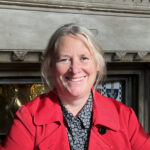 Kate Crosby is the Numata Professor of Buddhist Studies at the University of Oxford. She moved to Oxford from King’s College London, and previously held posts at the universities of Edinburgh, Lancaster, Cardiff and SOAS. She studied Sanskrit, Pali and other Buddhist languages, Indian religions and Buddhism at Oxford (MA and DPhil). She also studied at the universities of Hamburg and Kelaniya, as well as with traditional teachers in Pune, Varanasi and Kathmandu. She works on Sanskrit, Pali, and Pali-vernacular literature and on Theravada practice in the pre-modern and modern periods, including on the pre-modern meditation and its relationship to temporal technologies. Her publications include a translation and study of Śāntideva’s Bodhicaryāvatāra (with co-author Andrew Skilton, 1994); Mahābhārata: The Women and the Dead of Night (2009); Traditional Theravada and its Modern-Era Suppression (2013); Theravada Buddhism: Continuity, Identity, Diversity (2014); and Esoteric Theravada: The Story of the Forgotten Meditation Tradition of Southeast Asia (2020).
Kate Crosby is the Numata Professor of Buddhist Studies at the University of Oxford. She moved to Oxford from King’s College London, and previously held posts at the universities of Edinburgh, Lancaster, Cardiff and SOAS. She studied Sanskrit, Pali and other Buddhist languages, Indian religions and Buddhism at Oxford (MA and DPhil). She also studied at the universities of Hamburg and Kelaniya, as well as with traditional teachers in Pune, Varanasi and Kathmandu. She works on Sanskrit, Pali, and Pali-vernacular literature and on Theravada practice in the pre-modern and modern periods, including on the pre-modern meditation and its relationship to temporal technologies. Her publications include a translation and study of Śāntideva’s Bodhicaryāvatāra (with co-author Andrew Skilton, 1994); Mahābhārata: The Women and the Dead of Night (2009); Traditional Theravada and its Modern-Era Suppression (2013); Theravada Buddhism: Continuity, Identity, Diversity (2014); and Esoteric Theravada: The Story of the Forgotten Meditation Tradition of Southeast Asia (2020).
Imre GALAMBOS 高奕睿 (University of Cambridge 劍橋大學)
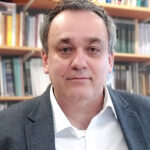 After having studied for several years in China (Tianjin) and Hungary, Imre Galambos received his Ph.D. from UC Berkeley with a dissertation on the orthography of Chinese writing during the Warring States period. Following his graduation he started working for the International Dunhuang Project at the British Library and became involved in the study of Dunhuang manuscripts and the manuscript culture of medieval China in general. After 10 years at the British Library, he moved to Cambridge in 2012.
After having studied for several years in China (Tianjin) and Hungary, Imre Galambos received his Ph.D. from UC Berkeley with a dissertation on the orthography of Chinese writing during the Warring States period. Following his graduation he started working for the International Dunhuang Project at the British Library and became involved in the study of Dunhuang manuscripts and the manuscript culture of medieval China in general. After 10 years at the British Library, he moved to Cambridge in 2012.
HE Huanhuan 何歡歡 (Zhejiang University 浙江大學)
HE Huanhuan is Qiushi Distinguished Professor of Buddhist Studies in the Department of Philosophy at Zhejiang University, Hangzhou. She moved to Zhejiang from the Chinese Academy of Social Science, and previously got the Ph.D from Peking University. She works primarily in the area of the Middle-way philosophy (Madhyamaka) with a monograph titled A Study of the Madhyamakahṛdayakārikā and the Tarkajvālā (2013) and articles in Chinese, Japanese, and English. In recent two years, she focuses on the philosophical development of Buddhism showed by thousands of ancient Chinese paintings.
LI Ling 李翎 (Sichuan University 四川大學)

Li Ling is a Professor at Sichuan University in Chengdu China. She earned her Ph.D. from the Department of Art History at the Central Academy of Fine Arts in Beijing under the supervision of Professor Jin Weinuo. Her research focuses on art from the Han to the Tang, with a concentration on Tibetan Buddhist Art. From 2002, Li Ling worked at the National Museum of China before moving to Sichuan University in 2018.
Robert SHARF 夏復 (University of California, Berkeley 加州大學柏克萊分校)
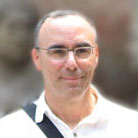
Robert Sharf is D. H. Chen Distinguished Professor of Buddhist Studies in the Department of East Asian Languages and Cultures at the University of California, Berkeley. He works primarily in the area of medieval Chinese Buddhism (especially Chan), but also dabbles in Japanese Buddhism, Buddhist art, ritual studies, and methodological issues in the study of religion. In addition to his appointment in East Asian Languages and Cultures, he is Chair of the Center for Buddhist Studies at UC Berkeley. He also serves on the editorial boards of the Journal of the International Association of Buddhist Studies, the Journal for the Study of Chinese Religions, the Journal of Religion in Japan, and the Kuroda Institute Series published in conjunction with University of Hawai‘i Press.
Kai SHENG 聖凱 (Tsinghua University 清華大學)
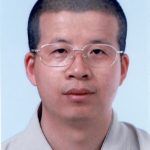 Ven. Dr. Sheng Kai is a Professor in the Philosophy Department of Tsinghua University, the Executive director of the Buddhist Association of China, and a Graduate Teacher of Buddhist Academy of Putuo Mount, Zhejiang Province. In 2008, he was the Associate professor of Philosophy Department of Nanjing University. He studied in the Buddhist Academy of China, Nanjing University, attained MPhil (Nanjing University) in 2002, PhD (Nanjing University) in 2005, and finished Postdoctoral study in Tsinghua University in 2007. He is the author of following books: (1.)The Buddhist Ritual of China, (2) Study on the Confessional Ritual of Chinese Buddhism, (3) The Buddhist Confessional Thought, (4) Study on the School of Mahayana-samuparigraha-sastra. He specializes in Buddhist Confession, Buddhist Pure Land Thought, Yogacara Buddism and Tathagatagarbha Buddhism.
Ven. Dr. Sheng Kai is a Professor in the Philosophy Department of Tsinghua University, the Executive director of the Buddhist Association of China, and a Graduate Teacher of Buddhist Academy of Putuo Mount, Zhejiang Province. In 2008, he was the Associate professor of Philosophy Department of Nanjing University. He studied in the Buddhist Academy of China, Nanjing University, attained MPhil (Nanjing University) in 2002, PhD (Nanjing University) in 2005, and finished Postdoctoral study in Tsinghua University in 2007. He is the author of following books: (1.)The Buddhist Ritual of China, (2) Study on the Confessional Ritual of Chinese Buddhism, (3) The Buddhist Confessional Thought, (4) Study on the School of Mahayana-samuparigraha-sastra. He specializes in Buddhist Confession, Buddhist Pure Land Thought, Yogacara Buddism and Tathagatagarbha Buddhism.
SUN Yinggang 孫英剛 (Zhejiang University 浙江大學)
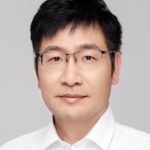
Studied at Beijing University (1996-2003) and Princeton University (2003-2009, Ph.D. from Department of East Asian Studies); Associate Professor of Medieval Chinese History at Fudan University (Shanghai, 2009-2016); Currently Professor of Medieval Chinese History (2016-), Dean of School of History (2021-) at Zhejiang University, Hangzhou; Visiting scholar to Tokyo University (2010) and Yale University (2015-2016).
Research Interests include medieval history (Northern and Southern Dynasties, Tang Dynasty) and History of Buddhism (especially Buddhism and Medieval Monarchship as well as Buddhism and the Silk Road). Currently work on how Gandharan Buddhism influenced Medieval Chinese History.
Barend ter HAAR 田海 (University of Hamburg 漢堡大學)
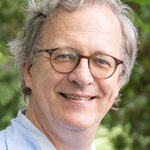 Barend ter Haar teaches Chinese studies at the University of Hamburg, with a strong focus on cultural and religious history. Although first of all a social and cultural historian, the religious dimension is so central to Chinese traditional life that much of his research up to now has dealt with religious phenomena. In addition, he has worked extensively on issues of ethnic identity, violence and fear, and social organization. An important concern of his is to demonstrate that traditional culture and cultural patterns are still relevant today, as becomes visible for instance in the case of the Falun Gong or the ongoing role of exorcist violence in political contexts throughout the twentieth century. For those who read Dutch, he has published a history of China, entitled The Heavenly Mandate: The history of the Chinese Empire until 1911 or Het Hemels Mandaat: De Geschiedenis van het Chinese Keizerrijk (AUP: Amsterdam, 2009) with a somewhat revisionist view on the Chinese past. His book on the lay Buddhist group called the Non-Action Teachings (late 16th century to the present) has come out with Hawai‘i University Press, as Practicing Scripture: A Lay Buddhist Movement in Late Imperial China.
Barend ter Haar teaches Chinese studies at the University of Hamburg, with a strong focus on cultural and religious history. Although first of all a social and cultural historian, the religious dimension is so central to Chinese traditional life that much of his research up to now has dealt with religious phenomena. In addition, he has worked extensively on issues of ethnic identity, violence and fear, and social organization. An important concern of his is to demonstrate that traditional culture and cultural patterns are still relevant today, as becomes visible for instance in the case of the Falun Gong or the ongoing role of exorcist violence in political contexts throughout the twentieth century. For those who read Dutch, he has published a history of China, entitled The Heavenly Mandate: The history of the Chinese Empire until 1911 or Het Hemels Mandaat: De Geschiedenis van het Chinese Keizerrijk (AUP: Amsterdam, 2009) with a somewhat revisionist view on the Chinese past. His book on the lay Buddhist group called the Non-Action Teachings (late 16th century to the present) has come out with Hawai‘i University Press, as Practicing Scripture: A Lay Buddhist Movement in Late Imperial China.
ZHAN Ru 湛如 (Peking University 北京大學)
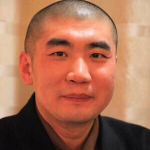 Zhan Ru is a Professor in Peking University’s School of Foreign Languages. Additionally, he is a member of the Chinese People’s Political Consultative Conference (CPPCC) National Committee, Vice President of the Buddhist Association of China and Vice President of the Peking University Orientalism Research Institute. His areas of research suninclude: Buddhist and Buddhist literature, the Indian Ministry of Buddhism, Dunhuang Buddhism, Buddhist system.
Zhan Ru is a Professor in Peking University’s School of Foreign Languages. Additionally, he is a member of the Chinese People’s Political Consultative Conference (CPPCC) National Committee, Vice President of the Buddhist Association of China and Vice President of the Peking University Orientalism Research Institute. His areas of research suninclude: Buddhist and Buddhist literature, the Indian Ministry of Buddhism, Dunhuang Buddhism, Buddhist system.

